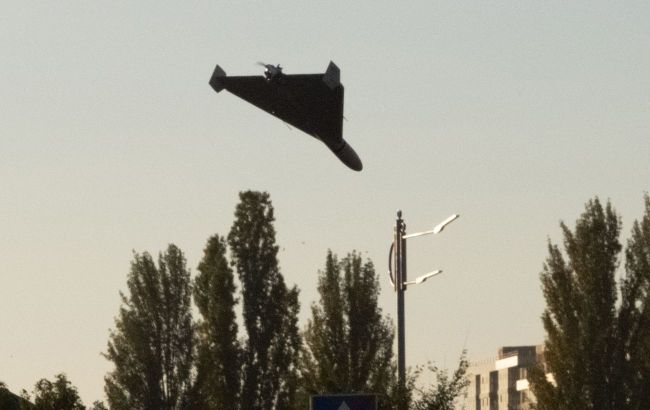Russian Shahed drone hits Kharkiv, explosives detonated for up to 20 hours
 Photo: Russia hit with a Shaheed with fragmentation warheads (Getty Images)
Photo: Russia hit with a Shaheed with fragmentation warheads (Getty Images)
Russian forces struck Kharkiv region on July 4 with a Shahed drone carrying fragmentation-type explosive elements. The munitions continued to detonate for several hours after the attack, according to the Interregional Humanitarian Demining and Rapid Response Center on Facebook.
"The disposal of the explosive elements was complicated by the fact that they begin to detonate on their own, one after another, 2 to 6 hours after being dropped. The last fragmentation element exploded 20 hours later," the statement said.
During operations to detect these explosive elements, sappers conducted aerial reconnaissance using a drone.
During the reconnaissance operation, sappers also discovered a second warhead that had not detonated and destroyed it through a controlled explosion.
Photo: Russia struck with a Shahed drone carrying fragmentation warheads (facebook.com/ICHDRR)
Russian drone attacks
Earlier, reports circulated online suggesting that Russia is allegedly preparing to significantly intensify drone attacks on Ukraine, launching up to a thousand drones in a single night.
This information was commented on by Yurii Ihnat, head of the Communications Directorate of the Air Force Command of the Armed Forces of Ukraine.
"People shouldn’t be overly frightened. Of course, we must prepare for an increase (in the number of drones), because there is such a trend," Ihnat said.
According to the Defense Intelligence of Ukraine (HUR), Russia possesses thousands of Shahed-136 strike drones and thousands of their decoys. However, it can launch a maximum of up to 500 drones per day.

